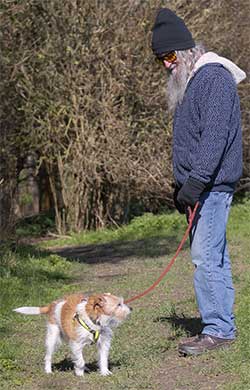
When my husband Roger turned out the factory light for the last time, looked back over his shoulder and checked his new gold wristwatch, the reality hit him. He was free! He no longer had a “boss” and could now do whatever he liked, whenever he liked. Or could he? How would he thrive in retirement?
How about traveling the world for a year?
Time to sell the house and buy that narrowboat he had always hankered after?
Play guitar in a local band?
Hang on! Let’s be practical here.
Although he had retired, I was still working. This meant he would have to travel alone, or put those plans on hold for a bit at the very least. Then add to the equation the fact that he hated flying. Maybe not the best idea?
Buying a boat sounded attractive, but he knew it could prove costly to maintain. And it was his dream, not mine.
Sadly, arthritis in his wrist put an end to his musical aspirations.
So it was time to consider how he was going to thrive in retirement, not just think of the upcoming years as an intermission, until we could enjoy our third season of life together.

How Do You Define Yourself After Retirement?
One thing he had to get used to straight away was how to introduce himself to new people he met. No longer could he say he was an electronics engineer when they asked what he did. The boring reply “I’m retired and going crazy” did not sit well.
I suggested he call himself “a gentleman of leisure and wealth.” His retort was that he was definitely not a gentleman, and the wealth was all tied up in the house.
He decided, “I am a free spirit. I want to enjoy life as much as I can” fit the bill.
You might not be as eccentric as Roger. You may want something more descriptive. For many, our job title defines us. When we retire and lose that, our sense of belonging and place in society goes with it. We somehow lose our perception of importance, become bored or no longer have a sense of purpose.
Perhaps we feel others judge our intelligence and income level from our job title? They would have trouble discerning any of that from Roger’s new retirement label.

How to Thrive in Retirement: The Transition Phase
As you move from one phase of your life to the next, you lose touch with some people and strengthen connections with others.
Relationships with former colleagues may not flourish in retirement, so now is the time to increase your social circle and build new friendships.
And of course, concentrate on those you love. No longer do you have to turn down family occasions due to work commitments. You can spend time with the grandkids and have the golden opportunity to build stronger bonds.
Use Your Newly Found Freedom!
As a child, you had to do as your parents, or teachers, told you. At work, it was your boss setting you tasks. Now, perhaps for the first time in your life, you have the freedom to do whatever you want. Use it to take charge of your retirement!
Say No if you don’t want to do something.
Change your plans on the spur of the moment.
Put things off until another day.
However, it’s still important to let common sense lead you to the right decision.
You Need Structure to Thrive in Retirement
Just as when you were at work, you’ll find you still need a structure to your day. A plan of action. A plan for the future. This enables you to look back on your day and state, “that was time well spent.”
By structuring your day, you’ll prevent boredom in retirement. You get to choose what makes a day successful. You can plan to…
-
- relax with friends and family
- do something that will make a difference to others
- learn something new
- set your own goals and deadlines.

Start planning your day by setting regular nutritious mealtimes. Getting out and about, if you can, is also important for a healthy retirement.
Decide in advance when your day starts and stops. Then you can schedule the other activities you would like to undertake.
Perhaps you want to engage in social interaction in the morning, learn something new in the afternoon, and read or paint in the evening.
Occasionally you’ll need to include annoying tasks like shopping or doing the housework.
Sharing: One of the Secrets to a Happy Retirement
Retirement offers the opportunity to give back and make a difference to others. Is there a better way to find purpose, pleasure and peace in your golden years?
This can be as simple as sharing what you would do, anyway.
For example, during lockdown, I have taken my camera with me on our country walks and photographed the wildlife and scenery. I shared the pictures on social media so that those who can’t get out still get a daily dose of nature. Many have told me how they look forward to the photos, which gives me an additional reason to go for a walk.
Roger, with his background of making and mending, is happy to tinker with lawnmowers, amplifiers and electric guitars so that their owners can use them again.
But what if health issues prevent you from walking or manually fixing things? You still have years of life experience to share. Have you ever thought about recording your knowledge in written form?
During your working years you accumulated knowledge on many subjects. These may be instinctive to you now, but could you share tips and tricks with those that have not yet reached your level of expertise?
Perhaps writing a book is too big a project, but how about sharing your knowledge via a website or blog?
Use Technology to Thrive in Retirement
One way to thrive in and not just survive retirement is to keep your brain active by learning something new.
Let’s take computer technology as an example. Scary, eh?

My 82 year old mother was unhappy that she was missing out on all the family gossip, so I gave her one of my old iPhones so that she could use Facebook to keep in touch. Having never used a computer, it was all new to her and she needed my help. But once she was set up, there was no stopping her!
It might take you longer to accomplish what a teenager could do in minutes, but does that really matter? Keep notes as they teach you, or ask again if their first attempt at an explanation went right over your head.
Once you use technology to stay in touch with your loved ones, you may want to take it a step further and create your own website or blog, which you could then develop into a retirement business.
You have no idea where to even begin such an undertaking? Worry not. Solo Build It!’s free Retirement Business Mini-Course provides an easy entry point. You’ll learn what’s involved in setting up your business for success, from researching your niche to creating content to building trust to finding the best ways to make money.
You won’t be left in the lurch once you finish the course either. If you decide to start your own online business after retirement (or even before!), you can call on the help of others, on the dedicated forums, a superb Support Team, and a thorough Action Guide for guidance.
Starting a Retirement Business: What Would I Write About?
The best advice given to new writers is to write about what you know. Pick a topic you’re passionate about and write for others who have the same passion.
After choosing a broad topic, narrow it down.
If you were a gardener and now you want to share your knowledge, pick an element of gardening to write about. For example,
- growing vegetables or flowers
- wildlife or landscape gardening
- your experience of working in a walled garden belonging to a country estate, or what to grow in a window box.

Once you’ve decided on your niche, think about how you’ll share your knowledge. Let’s stick with gardening for the moment…
- Will you use scientific descriptions for plants or names that an amateur would recognize? Or both?
- Or share your memories of how things used to be done or provide information on how your readers could do it now?
- Perhaps you’ll make them laugh? Cry? Or help them understand something?
But What If I’m No Good at It?
We all come up with excuses for not doing something that takes us out of our comfort zone. Becoming an entrepreneur in retirement may seem like a stretch goal, but it’s totally doable.
Remember these words of wisdom: the only way to fail is to never start.
Perhaps you’re worried about the costs involved and wasting your children’s inheritance?
Investment in learning something new is never wasted! Back in the 90s I created a website without the benefit of Solo Build It!. I had to learn HTML back then (no longer necessary) and the results were terrible! However, my friend took over that site and gets sales from it even now.
What if you could…
- Tell your own story?
- Share the secret places to visit in your area of the world?
- Record your family’s favourite recipes?
The work you put in could create a legacy that your children or grandchildren can benefit from, long into the future. Even if they never add another word to your site after you’re gone, it could still generate income that will make a difference to their futures.
Consider this! If you add video or audio to your site, your descendants will be able to see and hear you as well as reading your words. If only this technology had been around when my grandparents were alive!
Before you start protesting about performing in front of a camera, because you have wrinkles and grey hair, isn’t that the way your grandchildren recognize you right now?
Of course it’s not just your family that will visit your site. You can help thousands of others find the answers to their questions, important information or tutorials that will guide them when trying something new.
What a fantastic way to thrive in retirement and pay it forward!
Before another hour is marked by the hands on your gold watch, perhaps it’s time to add starting an online business to your schedule?
Carol Leather
Latest posts by Carol Leather (see all)
- How Do I Plan a Successful Website Before Building It? - December 5, 2024
- 7 Lessons Pet Ownership Can Teach You About Business - June 20, 2024
- How to Humanize AI Content: Go Beyond the AI Buzzwords - May 30, 2024

